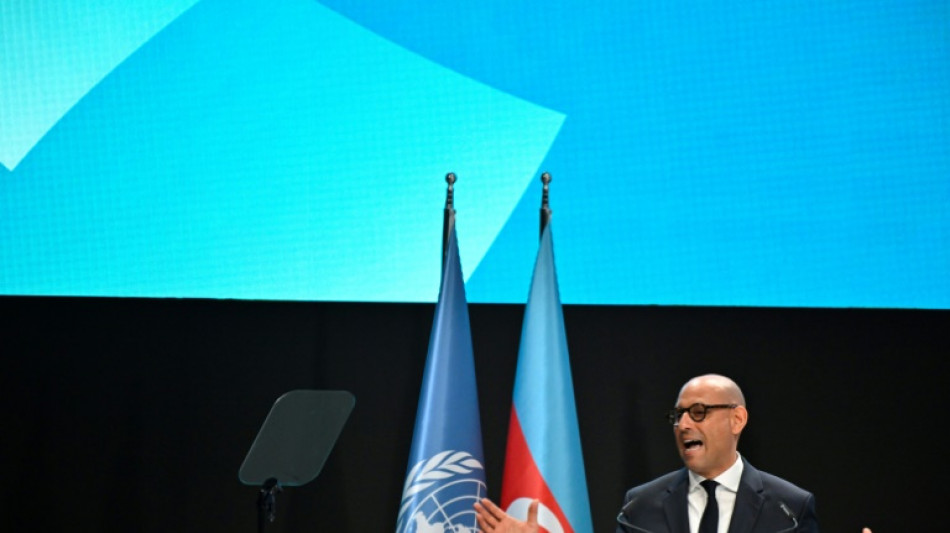

All eyes on G20 for breakthrough as COP29 climate talks stall
Negotiations were deadlocked Saturday at the midway point of the UN climate summit, with hopes pinned on G20 leaders intervening to strike a critical finance pact at the crunch talks.
After nearly a week of bargaining in Azerbaijan, nations were no closer to agreeing a $1 trillion deal for climate-action investments in developing nations.
Diplomats worked through the night in a sports stadium near the Caspian Sea to produce a fresh draft Saturday that only served to underscore divisions, with little changed from an earlier text.
"We absolutely want an agreement in Baku because it is in the collective interest," said a French diplomat granted anonymity to discuss the ongoing talks.
But "clearly we are deadlocked, and not where we should be to have an agreement".
Government ministers jetting into Baku on Monday face an uphill battle trying to break the impasse before the summit ends on November 22.
"There is still much, much to do," said Samir Bejanov, deputy lead negotiator of COP29 host Azerbaijan.
"Over the last few days, some people have doubted whether collectively we can deliver. It's time for the negotiators to start proving them wrong."
Optimism was in short supply as the first week fizzled out, but some attendees offered a rosier view.
"It's not as bad as it might look from the outside," said Irish climate minister Eamon Ryan.
- 'World is watching' -
The G20 leaders meeting starting in Brazil on Monday will be closely scrutinised for signs of political will to revive the stalled talks in Baku.
"As G20 Leaders head to Rio de Janeiro, the world is watching and expecting strong signals that climate action is core business for the world's biggest economies," said UN climate chief Simon Stiell.
Some developing countries, who are the least responsible for global greenhouse gas emissions, want an annual commitment of $1.3 trillion to help them adapt to climate changes and transition to clean energy.
Already buried in debt, they do not want the money to come in the form of loans.
The top-line figure is well above what donors including the United States, the European Union and Japan currently pay.
Around 200 protesters hummed in near-silent protest on Saturday at the windowless venue in Baku, holding signs and banners as delegates walked by.
"You owe us!" declared one. "Make Polluters Pay!" read another.
Rich nations, which face their own economic challenges and political pressure following years of high inflation, are loath to commit large amounts of money from their public budgets alone.
The negotiations are stuck over the final figure, the type of financing, and who should pay, with developed western countries wanting China and wealthy Gulf states to join the list of donors.
In a possible sign of progress, top Chinese climate officials in Baku met with counterparts from the EU, Germany, France, Denmark and the Netherlands, according to sources with knowledge of these discussions.
- Stark divisions -
The latest draft deal was 25 pages long, and still contained a raft of options.
"Stark divisions between North and South prevent negotiators from tackling the main issues at hand," said Iskander Erzini Vernoit, director of the Imal Initiative for Climate and Development, a Morocco-based think tank.
Tensions also emerged after some nations specified how much they should be getting from any deal.
A bloc of least-developed nations, mostly from Africa, asked for $220 billion while small-island states at threat from rising seas want $39 billion.
Friederike Roder, a vice president at the non-profit Global Citizen, said the latest draft contains a "jungle of options" that makes "insufficient progress or even backtracks" on some key points.
"What is urgently needed is real political momentum and energy from world leaders as they convene for the G20 summit in Rio," she said.
L.Marino--IM



